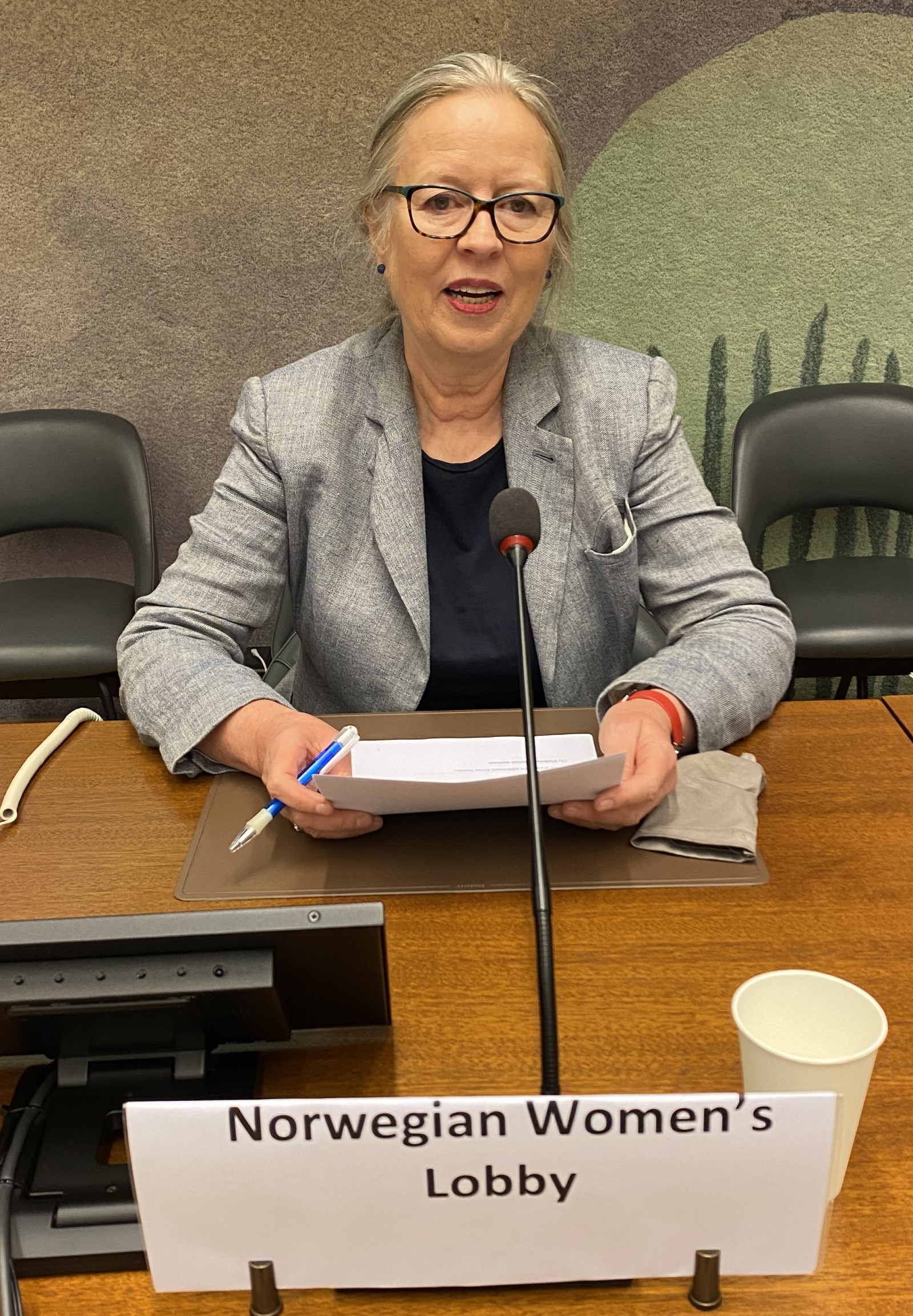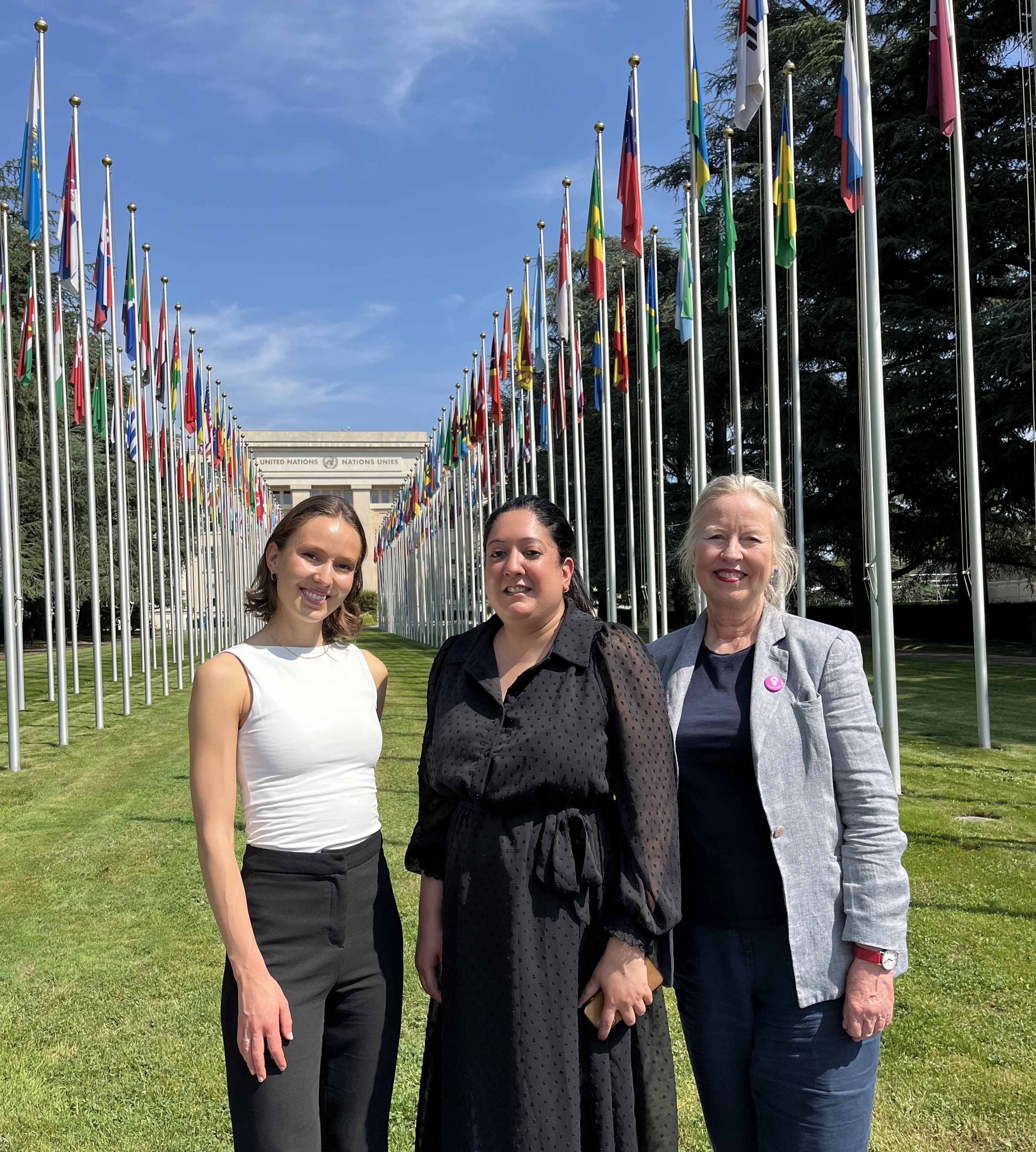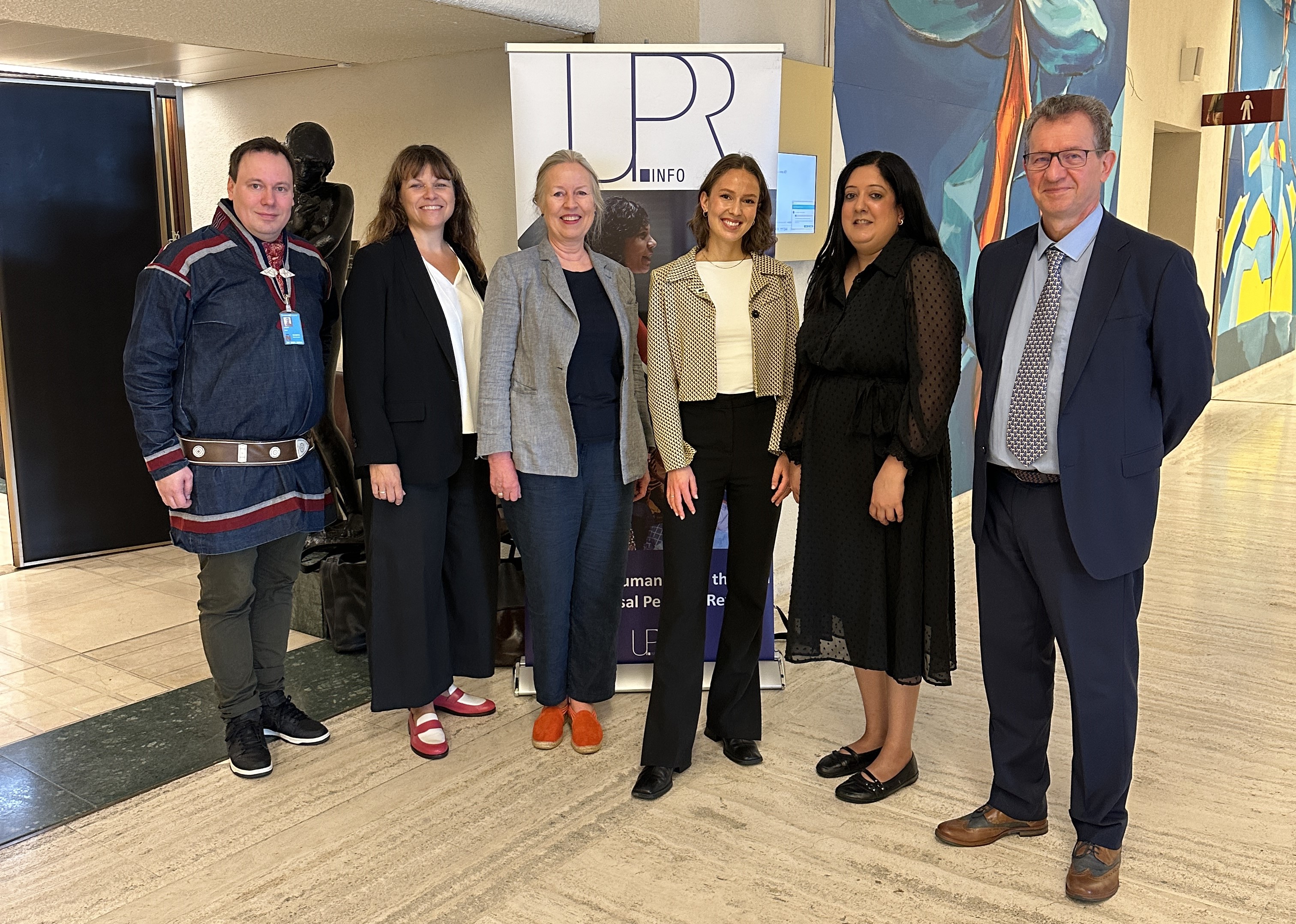FNs Menneskerettighetsråd i Genève

Sist uke var Norges Kvinnelobbys styremedlem Kristin Hetle i Menneskerettighetsrådet i Genève. Her deltok hun sammen med andre representanter fra norsk sivilsamfunn for å gi innspill til Rådets femårige gjennomgang av Norges innsats for å fremme og opprettholde menneskerettighetene, den såkalte «universal periodic review», UPR.
I vårt innlegg fokuserte Kvinnelobbyen på plikten Norge har til å sikre et likeverdig og godt nok krisesentertilbud i hele Norge, og at dette er et ansvar staten er forpliktet av og ikke kan delegere til den enkelte kommunes budsjettprioriteringer. Vi minnet også om den gjentatte kritikken fra FN mot Norges bruk av kjønnsnøytralt språk i lovverk, som risikerer å tilsløre hvordan kvinner og menn rammes ulikt av det loven skal dekke. Til slutt påpekte vi hvordan staten diskriminerer norske kvinneorganisasjoner økonomisk sammenliknet med andre organisasjoner som arbeider med de ulike diskrimineringsgrunnlagene i Likestillings- og diskrimineringsloven. Her viste vi til at Likestillings- og diskrimineringsombudet har uttrykt sterk bekymring for den ulikebehandlingen kvinneorganisasjonene er utsatt for.
Under kan du lese innlegget vårt (på engelsk):
Good morning,
I deliver this statement on behalf of the Norwegian Women’s Lobby, an umbrella organization for women’s rights NGOs and experts on women’s human rights in Norway. NWL monitors the implementation of the CEDAW Convention in Norway and works to promote its visibility and relevance in society.
The Ministry of Foreign Affairs coordinated the preparation of the National Report and held consultations with Civil Society Organizations (CSOs) through open meetings and written input. However, no women’s rights organizations were directly invited or consulted.
Our statement addresses three issues.
(1) Violence against women
In the last review, several delegations addressed the need to strengthen protection of women’s rights, including against violence.
Since the last review a new national plan against domestic violence has been adopted. It includes a separate section on violence and abuse in Sami communities. Also, a permanent National Intimate Partner Homicide Commission is being established.
Sadly however, new national prevalence studies show that violence against women, including rape, has increased. Almost every fifth woman – a doubling since 2014 - (19%, up from 9 % in 2014) - has been subject to rape in her lifetime. One in ten women has experienced intimate partner violence.
Currently, Norway is revising the law governing the provision of shelters. Each municipality has a duty to provide shelter and support for victims of violence, this within “reasonable” travel distance. The quality and accessibility of the shelters differs greatly. Today, some have to travel almost 500 kilometers to reach a shelter. While the State is the main duty bearer, the responsibility to provide shelter is outsourced to municipalities with no earmarked funding.
Proposed recommendation:
The State must, as the main duty bearer, ensure that funding of and access to shelters, and the quality of other support services for victims of violence remain a national responsibility and not be subject to local budgetary priorities.
(2) Use of gender-neutral language in legislation
This has not previously been reviewed.
Points of concern:
Norwegian legislation is generally and intentionally framed in a gender-neutral manner. In its concluding observations in 2017 and 2023, the CEDAW Committee was critical of Norway’s gender-neutral framing of legislation and programmes, calling for information and documentation to substantiate that this practice does not result in inadequate protection of women against direct and indirect discrimination and hinder the achievement of substantive equality between women and men as explained in paragraph 5 of the Committee’s general recommendation No. 28 (2010) on the core obligations of States parties under article 2 of the Convention.
We are concerned that when laws and policies identify problems faced particularly by women, but in a gender-neutral manner - this gender-neutrality may obscure women’s disproportionate exposure to such problems and consequently, fail to address them adequately.
Proposed recommendations:
- Norway must investigate whether gender-neutral legislation has an adverse effect on women’s rights.
- Norway must introduce gender-sensitive legislation as needed to achieve genuine equality.
(3) Financing of women’s rights advocates
Not previously reviewed
Points of concern:
Norway’s Equality and Anti-Discrimination Act covers several grounds for discrimination: sex, ethnicity, disability, sexual orientation and others. The women’s movement plays a crucial role in advocating for legislative measures and in monitoring how Norway upholds its obligations towards women’s rights, non-discrimination and gender equality.
While the State is not obliged to financially support CSOs, Norway does so. Financial support for CSOs is broadly considered fair and necessary to enable democratic representation and to enable rights holders to claim their rights.
The Equality and Discrimination Ombud has expressed its grave concern that women’s rights organizations in Norway are severely underfunded compared to organizations representing other grounds for discrimination.
While several of these organizations receive sufficient financial support to have secretariats with relevant expertise and administration, the women’s rights organizations are in general run on a 100% voluntary basis due to lack of funding. On average, the women’s rights organizations receive less than 25 % of the government support granted per member to the other organizations covered by the Equality and Anti-Discrimination Act.
Proposed recommendation:
Norway must ensure that, to the extent it does provide funding for civil society organizations representing right holders under the Equality and Anti-Discrimination Act, it must not financially discriminate against women’s rights organizations (or other specific mandates).
I thank you.


